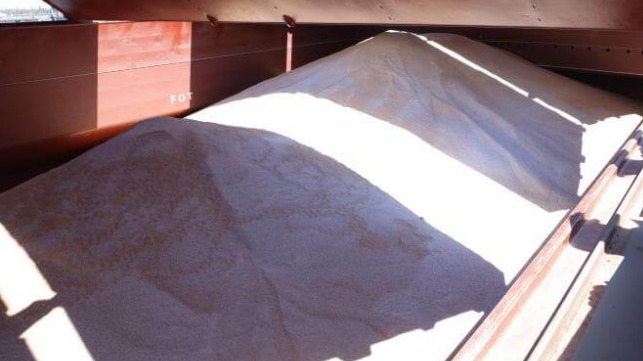Russia Offers to Ease Food Blockade in Exchange for Sanctions Relief

Amidst growing risk of famine in parts of the Middle East and Africa, the Russian government has held out hopes that it might allow millions of tonnes of Ukrainian food to reach the global South - but only as part of a deal on sanctions relief for Russia.
Russia has imposed a naval blockade on all Ukrainian ports, including the key agricultural export hub of Odesa. An estimated 22 million tonnes of grain are stuck in Ukraine because seaborne commerce is fully cut off. Ukraine cannot sell its crops, and import-dependent nations like Lebanon and Egypt cannot buy them. The problem is set to worsen by the end of summer because there is no room in the silos to store the next harvest. Meanwhile, a food crisis is growing in import-dependent countries, and the grain that could help them is stuck by the pier, warns the World Food Programme.
"44 million people around the world are marching towards starvation. We have to open up these ports so that food can move in and out of Ukraine. The world demands it because hundreds of millions of people globally depend on these supplies," WFP director David Beasley warned earlier this month.
Amidst growing risk of famine in parts of the Middle East and Africa, the Russian government has implied that it could allow millions of tonnes of Ukrainian grain to reach the global market - but first, it wants to reach a deal on sanctions relief.
"A solution to the food problem requires a comprehensive approach, including the lifting of sanctions that have been imposed on Russian exports and financial transactions,” Rudenko told state media on Wednesday. "Russia is ready to provide the necessary humanitarian passage."

that matters most
Get the latest maritime news delivered to your inbox daily.
"You could not find a clearer example of blackmail in international relations," responded Ukrainian Foreign Ministery Dmytro Kuleba bluntly, speaking at a panel at Davos on Wednesday. "If anyone is buying it, I think there is a problem with that person."
